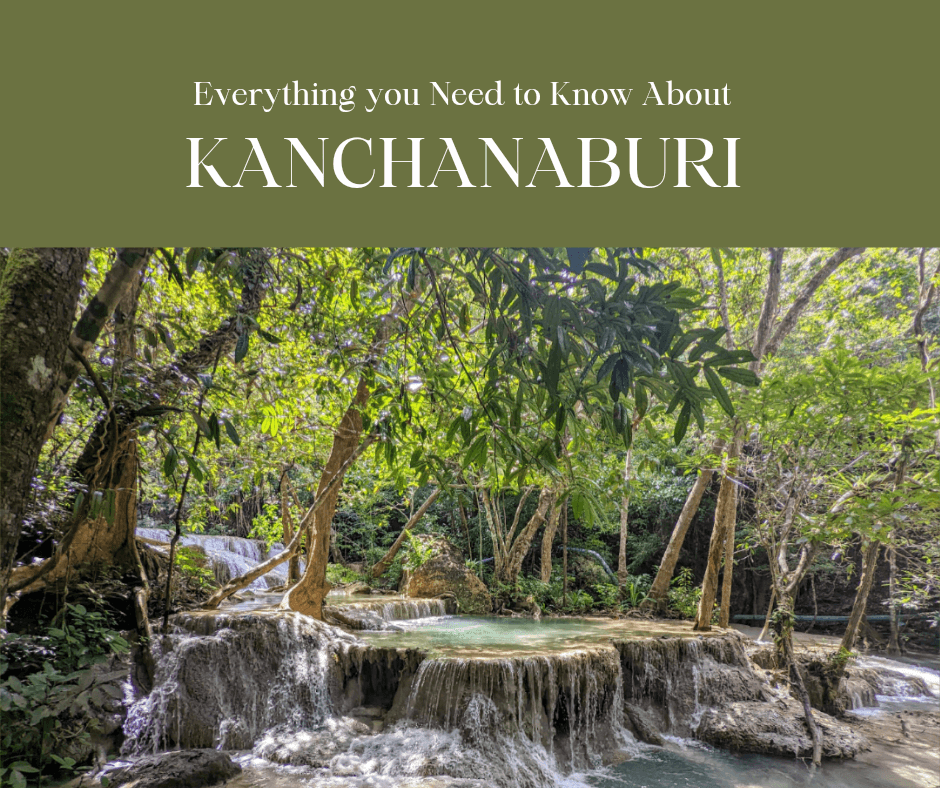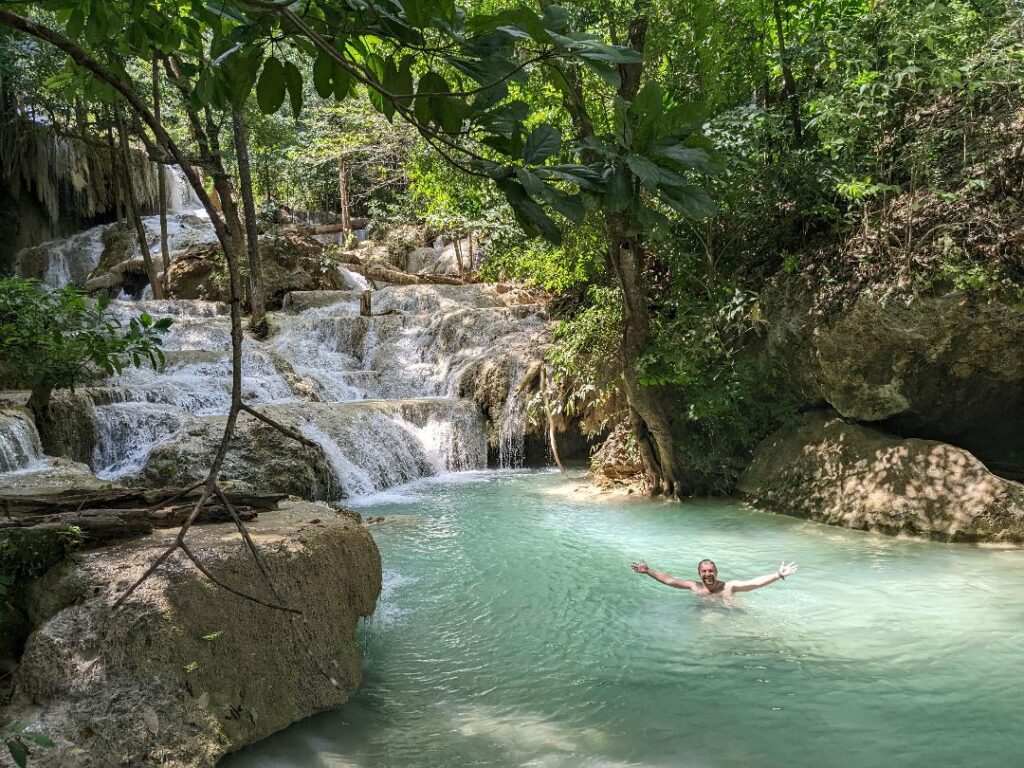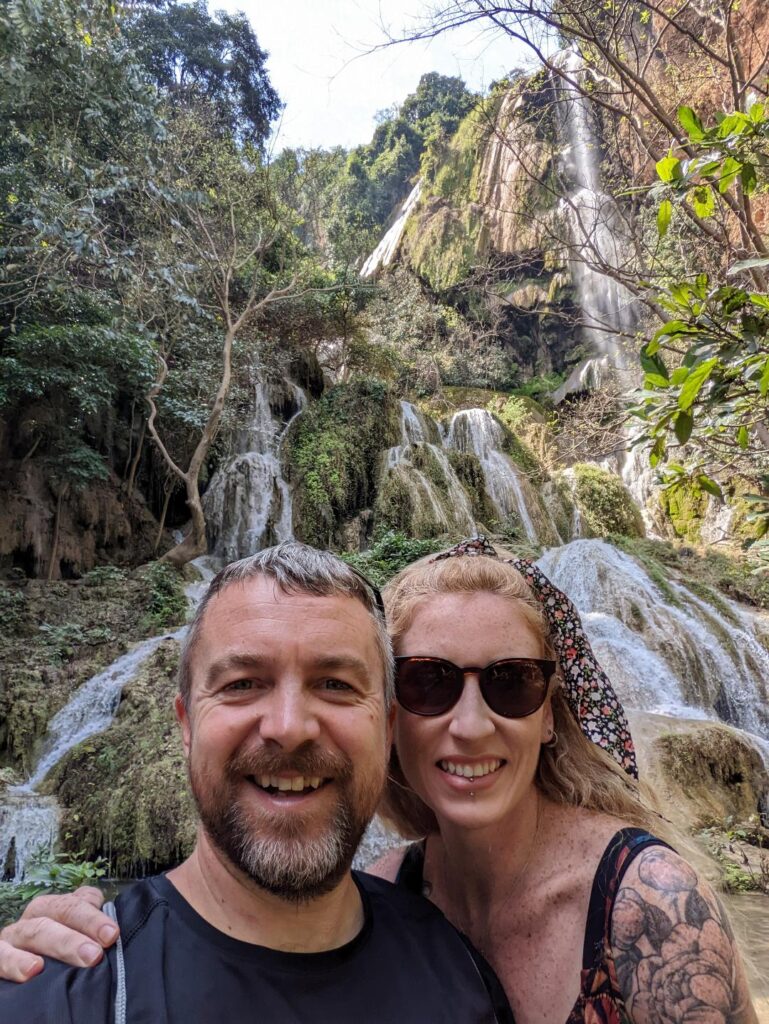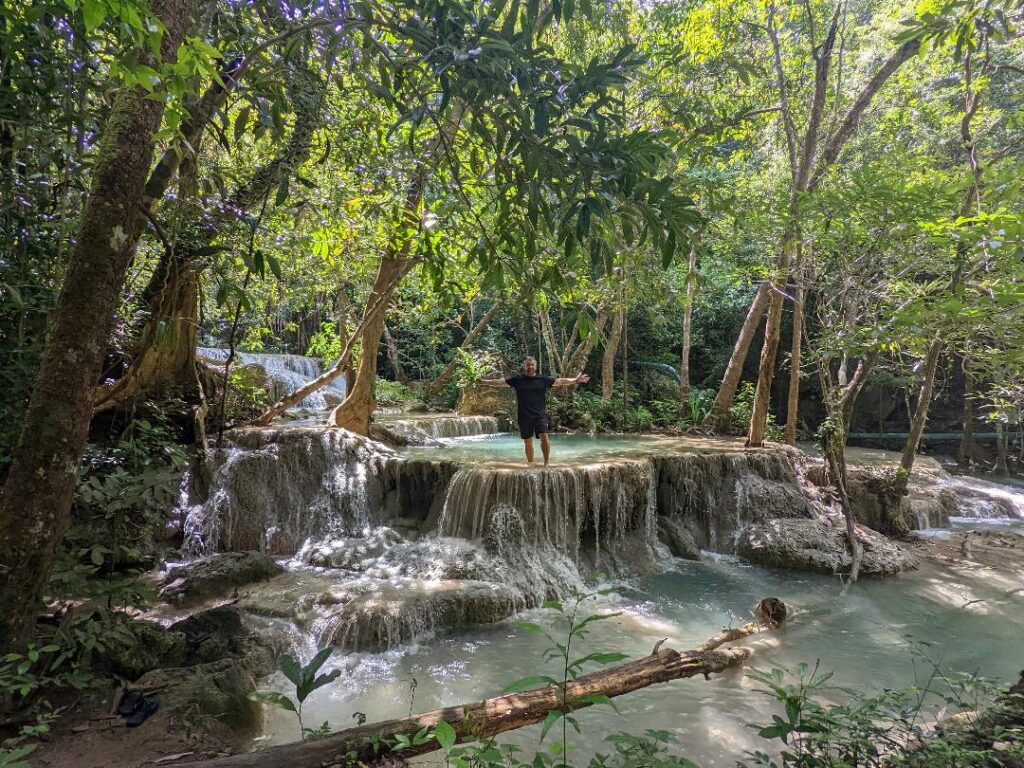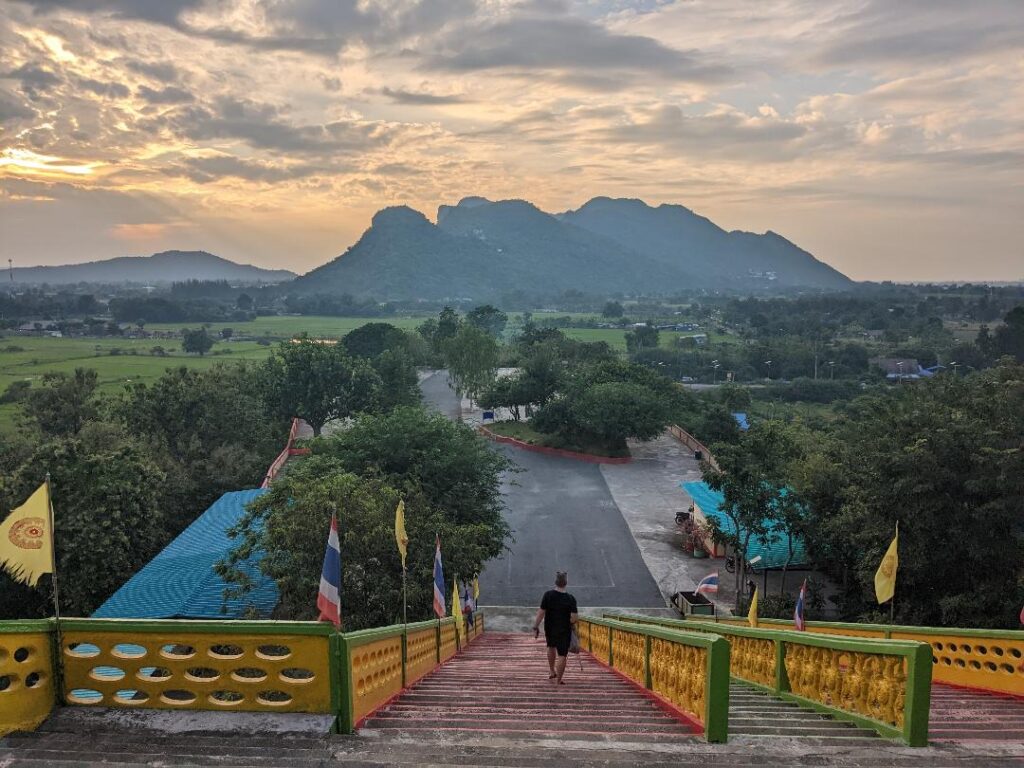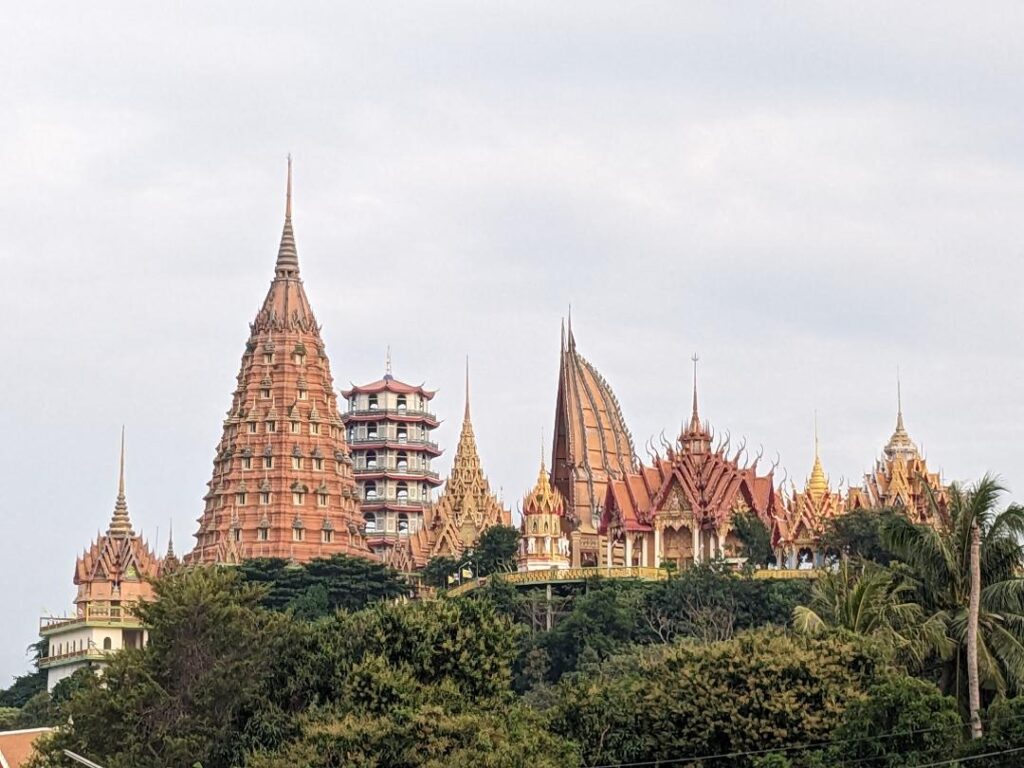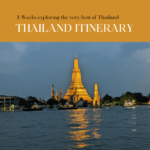Last updated on June 7th, 2025 at 11:48 am
Put simply, if you’re planning a trip to Thailand, you need to visit Kanchanaburi during your itinerary.
Just three hours west of Bangkok, Kanchanaburi is one of Thailand’s most underrated destinations. This province offers a unique mix of history, natural beauty, and authentic Thai culture – perfect for travelers looking to experience more than just beaches and big cities.
Kanchanaburi is best known for its powerful World War II history, including the Bridge over the River Kwai and the Death Railway. But beyond its historical significance, the region is home to breathtaking landscapes, such as Erawan National Park, which has arguably one of the most beautiful waterfalls in the world!
Beyond historical sites and scenic beauty, Kanchanaburi offers a more authentic side of Thailand through its peaceful temples, bustling local markets, and warm hospitality. It’s an ideal destination for those seeking a deeper cultural experience without straying too far from Bangkok.
In this article, not only will we advise you on the best way to get from Bangkok to Kanchanaburi, and what the top things to do in Kanchanaburi are, but we will tell you about one of Thailand’s hidden gems we discovered that might just be the highlight of your trip.
Don’t have time to read the entire article? Book this top-rated tour of Kanchanaburi on a day trip from Bangkok. Even better, why not visit Kanchanaburi as part of your Ultimate 3-week Thailand Itinerary?!
Bangkok to Kanchanaburi – How Do I Get There?
First of all, let’s begin with finding out how to get to Kanchanaburi.
Traveling from Bangkok to Kanchanaburi is relatively easy, and there are several transportation options:
Train: You can take a train from Bangkok’s Thonburi Railway Station to Kanchanaburi. The scenic train journey offers picturesque views along the way, crossing the famous Bridge over the River Kwai. The train ride takes approximately 2-3 hours.
Bus: Buses depart regularly from Bangkok’s Southern Bus Terminal to Kanchanaburi. The bus journey takes around 2-3 hours, depending on traffic and the type of bus.
Minivan: Minivans are a convenient and fast option, with direct services from Bangkok to Kanchanaburi. If you’re traveling with a group, this can be one of the most cost-effective ways to reach Kanchanaburi.
Join a Guided Tour: Possibly the easiest option to travel from Bangkok to Kanchanaburi is to join a small group tour. Alternatively, you can book a customized tour from Bangkok to Kanchanaburi to see the places you want to visit at your own time and pace.
Rent a car: Renting a car in Thailand is one of the best ways to get to Kanchanaburi and explore Thailand’s hidden gems at your own pace, offering both comfort and travel flexibility.
To experience the very best of Thailand, check out some more amazing Day Trips from Bangkok.
Visit Kanchanaburi: Things to Do in Kanchanaburi
There are several amazing things to do in Kanchanaburi and world-class attractions to explore. Seriously, a few of these sites sit on top of the list of best places we’ve seen on all of our travels and even made it onto our list of 21 best landmarks in Asia.
Insider’s Tip: Don’t miss out on the last Kanchanaburi recommendation!
You can find all the information you will need for your Thailand Holiday to best prepare for a trip of a lifetime.
1. Best Things to Do in Kanchanaburi: Discover the Historic Bridge over the River Kwai
One of the most iconic and emotional experiences when you visit Kanchanaburi is exploring the Bridge over the River Kwai, a major landmark along the infamous Death Railway built during World War II. This site is not only one of the most visited attractions in Kanchanaburi but also one of the most important in Thailand’s wartime history.
Walk Across the Bridge over the River Kwai
The Bridge over the River Kwai, located near Kanchanaburi town, is now developed with side platforms that allow visitors to walk across the bridge safely and for free. This peaceful stroll contrasts sharply with the tragic history behind the structure, making it a deeply reflective experience.
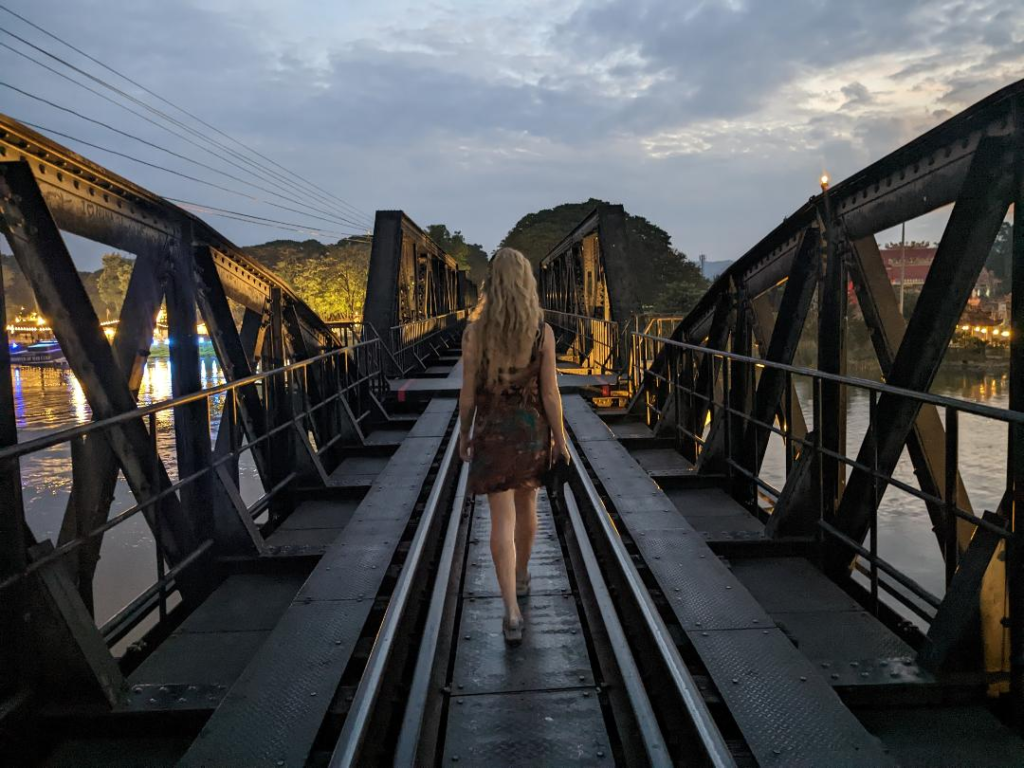
Learn the Real History Behind the Bridge
Built by Allied prisoners of war and forced Asian laborers under Japanese command, the bridge formed a key part of the Burma Railway – later called the Death Railway due to the horrific conditions workers endured. Tens of thousands died from malnutrition, disease, and abuse, making Kanchanaburi’s Death Railway one of World War II’s darkest chapters.
Visit the JEATH War Museum
Just a short walk from the bridge, the JEATH War Museum provides powerful context through photos, personal stories, and recreated POW huts. It’s one of the most important things to do in Kanchanaburi if you want to understand the emotional depth behind the landmark.
Did you know? The story of the bridge was popularized by the novel and movie The Bridge on the River Kwai, though the real history is far more complex and tragic.
2. Best Things to Do in Kanchanaburi: Explore the Magical Erawan National Park
If you’re looking for a change of pace after exploring Kanchanaburi’s historical sites, it’s time to connect with nature.
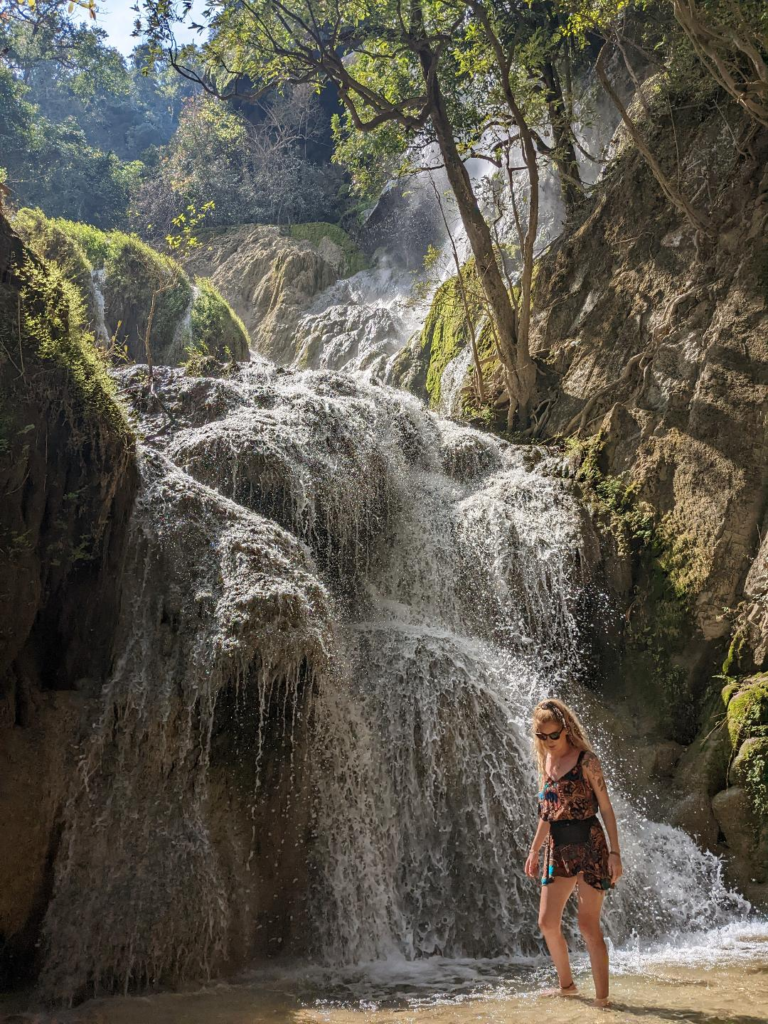
One of the top things to do in Kanchanaburi is visit the breathtaking Erawan Waterfall, located in Erawan National Park. Trust us – this natural wonder is a must-see and ranks easily as the best waterfall in Thailand.
If you’re a fan of waterfalls, don’t miss our list of the 10 most beautiful waterfalls in world.
Swim in the Emerald Pools of Erawan Waterfall
The seven-tiered Erawan Waterfall is the crown jewel of Erawan National Park. As you hike through the tropical jungle, you’ll pass level after level of cascading falls and vivid turquoise pools – some of the bluest pools you’ll ever witness – many of which you can swim in.
Now if that doesn’t sound like the most magical day in Kanchanaburi we don’t know what is!
Erawan is not only visually stunning but also incredibly peaceful, making it a perfect day trip when you visit Kanchanaburi.
Don’t forget your swimwear, water shoes, and a waterproof camera – Erawan National Park is one of the most beautiful places in Thailand.
Travel tip: Arrive at Erawan National Park early to beat the crowds and enjoy the upper tiers in peace!
How to get to Erawan National Park from Kanchanaburi town
To get to Erawan National Park from Kanchanaburi town, you have several transportation options:
Bus: You can take a bus from Kanchanaburi Bus Terminal to Erawan National Park. Buses regularly ply this route, and the journey takes approximately 1.5 to 2 hours.
Minivan: You can easily book a shared minivan from Kanchanaburi to Erawan National Park.
Taxi or Tuk-tuk: Hiring a taxi or tuk-tuk is a convenient option if you prefer a direct and more comfortable ride. Make sure to negotiate the price before you begin your journey.
Scooter Rental: For more adventurous travelers, renting a scooter in Kanchanaburi Town is an option. We chose this option, as it offers us a budget-friendly option and more convenience to explore surrounding areas.
Join a Tour: Alternatively, you can join this popular full-day tour from Kanchanaburi to Erawan National Park. Note that tours may or may not include the park fees, see fees below:
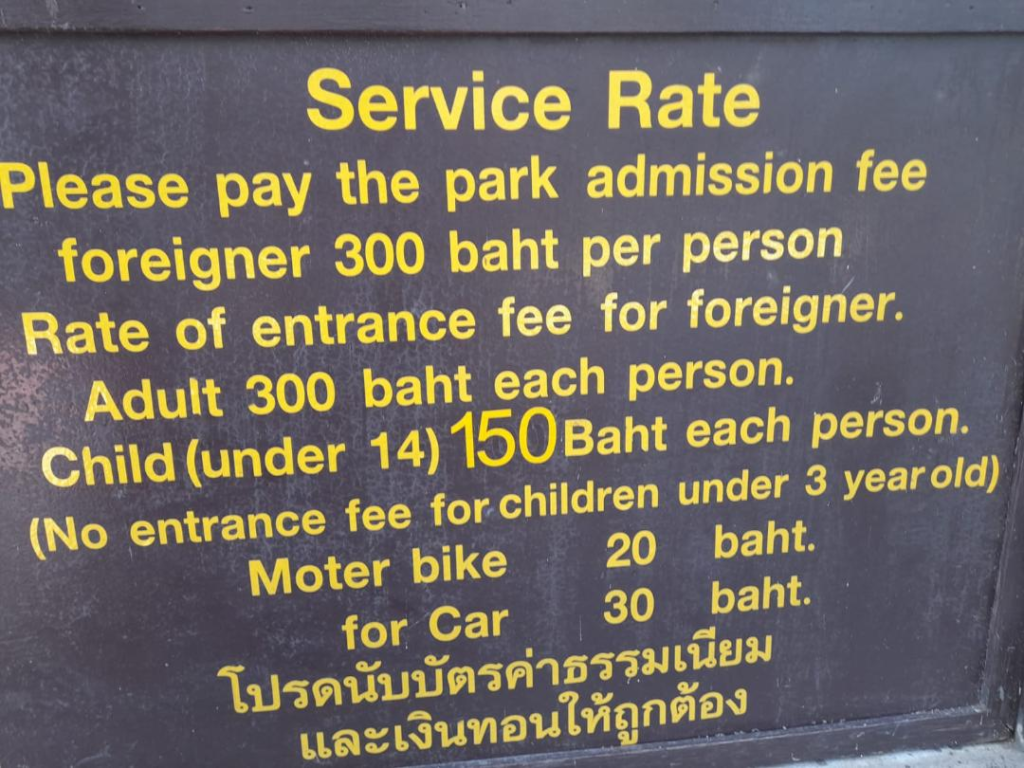
Make the most of your Thailand itinerary by timing your trip with one of the country’s vibrant cultural celebrations – check out our guide to the Best Thai Festivals and start planning your unforgettable journey today.
3. Best Things to Do in Kanchanaburi: Hellfire Pass
One of the most powerful and emotional things to do in Kanchanaburi is to visit Hellfire Pass, a deeply significant site along the Death Railway.
Located about 80 km northwest of Kanchanaburi town, Hellfire Pass (Konyu Cutting) is a long rock trench cut through the mountains by Allied prisoners of war (POWs) and forced Asian laborers during World War II.
What Is the Hellfire Pass Cutting?
The Hellfire Pass cutting is a section of railway track that had to be manually carved out of solid limestone rock in order to allow trains to pass through the Tenasserim Hills. It stretches over 500 meters long and up to 26 meters deep. What makes this cutting particularly tragic is how it was built – using only basic hand tools like hammers, picks, and chisels.
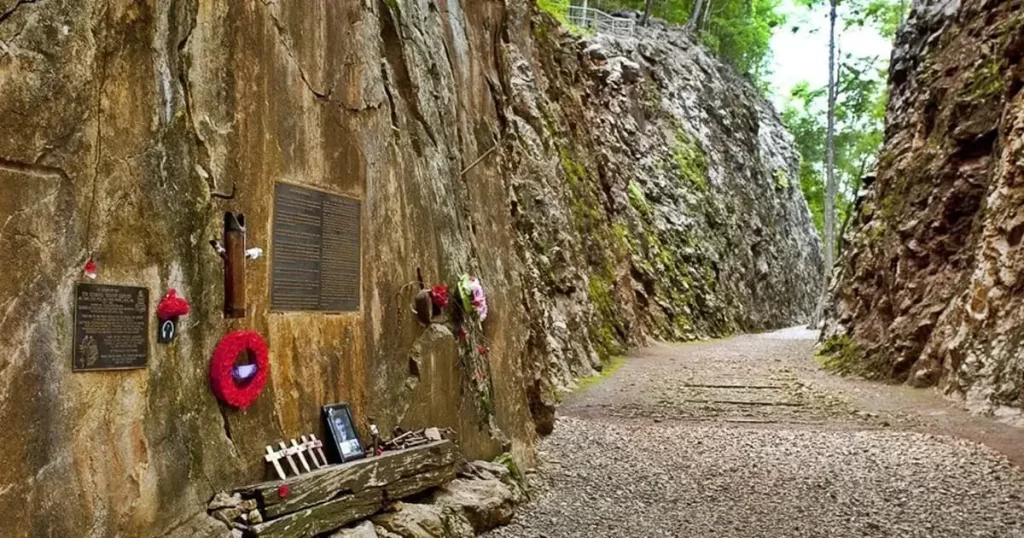
The name “Hellfire Pass” was given by surviving POWs who said that, at night, the sight of emaciated prisoners working by torchlight resembled a scene from hell. Many lives were lost here due to the brutal working conditions, extreme heat, lack of food, and physical abuse by Japanese and Allied forces.
Why You Should Visit Hellfire Pass
When you visit Kanchanaburi, taking the time to explore Hellfire Pass offers a profound perspective on the human cost of the Death Railway.
The Hellfire Pass Memorial Museum, operated by the Australian government, provides historical exhibits, personal stories, and an audio guide that brings the experience to life.
You can also walk the original railway trackbed along the Hellfire Pass Walking Trail, a moving experience through quiet forest and cuttings that ends at several memorial points.
Travel tip: Wear comfortable walking shoes, bring water, and plan for at least 2–3 hours if you’re walking the full trail.
Hell Fire Pass: Three Experiences in One Visit:
- The Museum – Learn the history
- The Cutting (Hellfire Pass itself) – Walk through the actual pass
- The Trail – Optional extended walk to explore more of the railway path
Check out the most popular Hellfire Pass Tour below:
4. Best Things to Do in Kanchanaburi: Reflect at the Kanchanaburi War Cemetery
One of the most important things to do in Kanchanaburi is to visit Kanchanaburi War Cemetery, also known as the Don Rak War Cemetery. This beautifully maintained site serves as the final resting place for nearly 7,000 Allied prisoners of war (POWs) who died during the construction of the Death Railway.
Located in the heart of Kanchanaburi town, right next to the Thailand-Burma Railway Centre, the cemetery is a place of solemn remembrance.
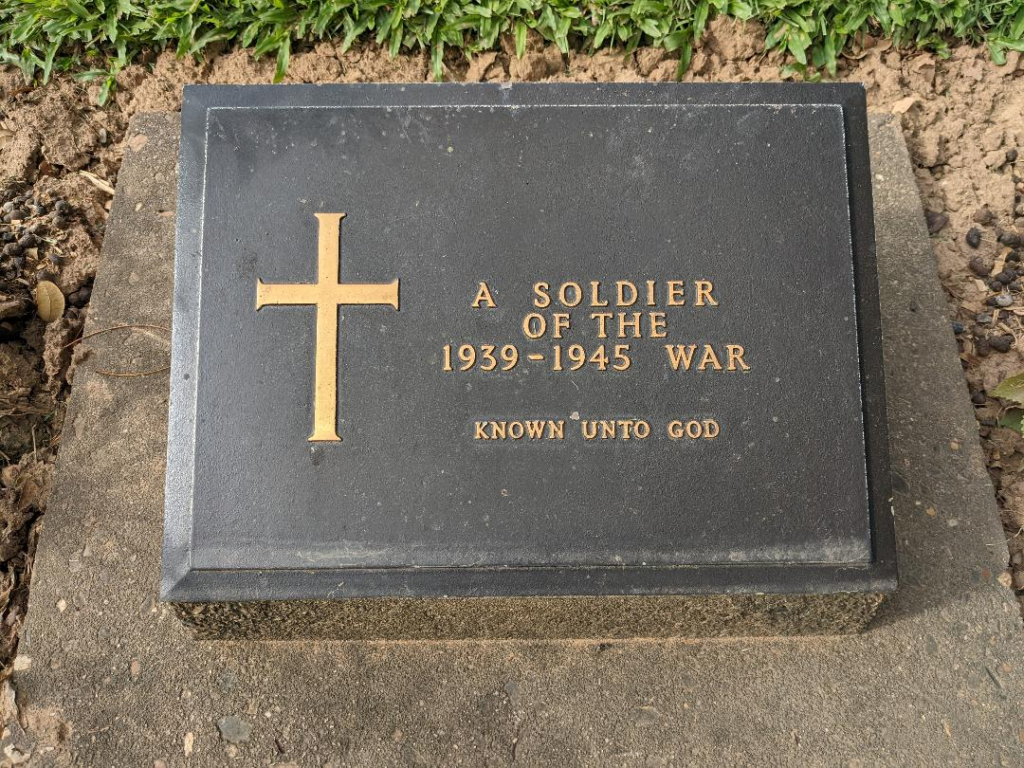
Most of the soldiers buried here were from the United Kingdom, Australia, and the Netherlands, and each grave is carefully marked with plaques honoring their names, nationalities, and dates of death.
The cemetery is meticulously maintained by the Commonwealth War Graves Commission, with rows of headstones set amidst manicured lawns and flowering trees. It provides a peaceful space to reflect on the human cost of the Death Railway and the horrors endured by those forced to build it.
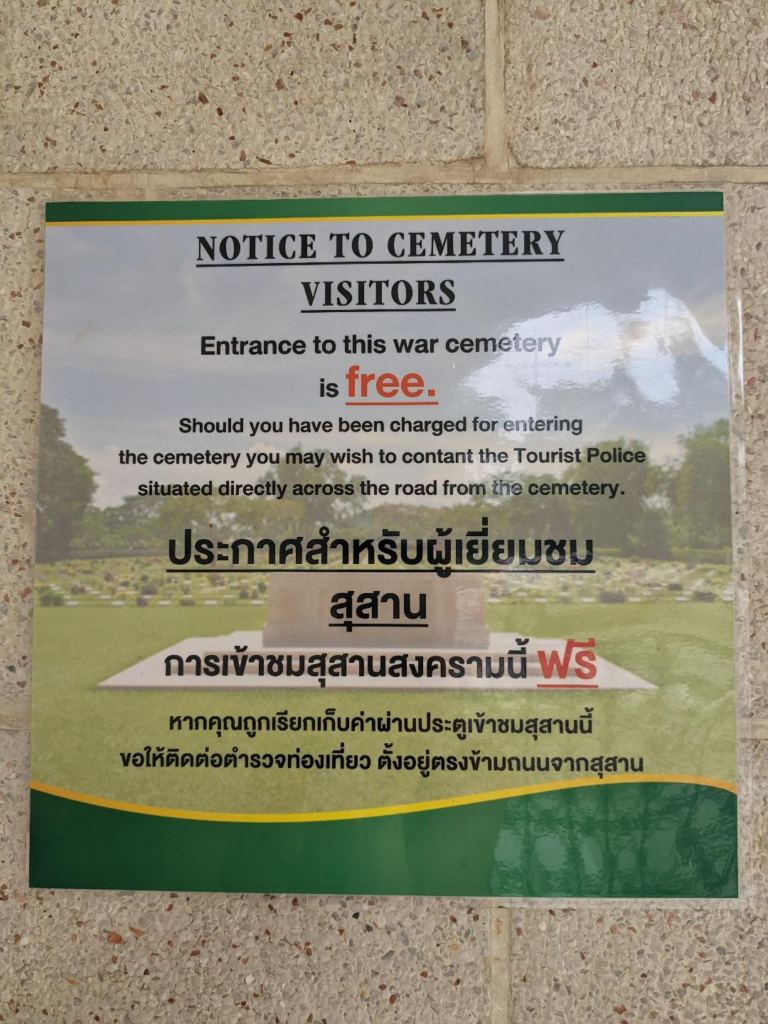
Travel tip: Combine a visit to the cemetery with a stop at the nearby Thailand-Burma Railway Centre museum, which offers detailed historical context through exhibits and survivor accounts.
5. Best Things to Do in Kanchanaburi: Take a Death Railway Train Ride
One of the most unforgettable things to do in Kanchanaburi is take the Death Railway train ride, a scenic journey that combines rich history with stunning landscapes.
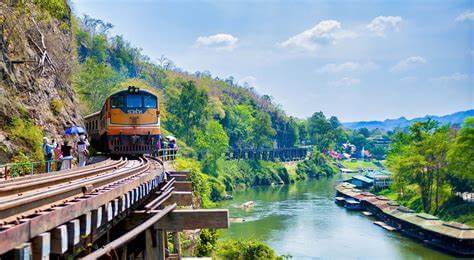
As we now know, the historic railway was originally built during World War II by Allied POWs and Asian laborers under Japanese control, now this railway offers a peaceful ride through the Thai countryside.
As the train slowly travels along the cliff-hugging tracks, you’ll enjoy breathtaking views of the River Kwai, lush jungle scenery, and wooden viaducts that cling dramatically to the mountainside.
The most iconic section is near Tham Krasae, where the railway curves tightly along a cliff with panoramic river views.
Travel tip: Sit on the left side of the train when traveling toward Nam Tok for the best views.
Top-rated Kanchanaburi Tour:
- If budget allows, consider booking the ultimate Kanchanaburi tour where you can experience the highlights of Kanchanaburi in a day. Cross the bridge over the River Kwai on foot, go for a train ride on the Death Railway, hike through Hellfire Pass and visit the Hellfire Memorial. Finally, you will make a scenic stop at Saiyoke Noi waterfalls on your return to Kanchanaburi town.
6. Best Things to Do in Kanchanaburi: Explore Prasat Mueang Sing Historical Park
For a dose of ancient history and architecture, one of the more unique things to do in Kanchanaburi is to visit Prasat Muang Sing Historical Park.
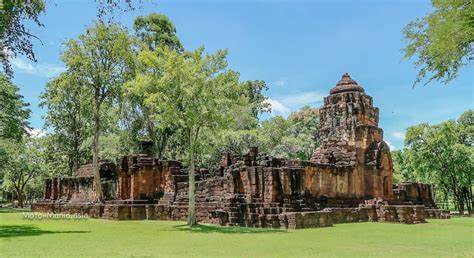
What has been described as a “mini Angkor Wat” in Thailand, this archaeological site features well-preserved Khmer-style temples and stone structures that date back to the 13th and 14th centuries, during the reign of the Khmer Empire.
Set against a quiet backdrop along the Kwai Noi River, the site includes intricately carved sandstone towers, laterite walls, and ancient Buddha images. It’s believed that the complex served as a trading outpost or military post for the Khmer kingdom. The main temple’s architecture closely resembles the style found in Cambodia’s Angkor-era ruins, and in our opinion, is truly a hidden gem in the Kanchanaburi Region.
Unlike Angkor Wat, Prasat Muang Sing is often uncrowded, offering a very special and surreal experience where you can wander the grounds and imagine what life might have been like in ancient Siam.
Travel tip: The site is about 40 km from Kanchanaburi town – easily reachable by car, scooter, or as part of a historical day tour.
7. Best Things to Do in Kanchanaburi: Explore the Sacred Site of Krasae Cave
Another moving and memorable thing to do in Kanchanaburi is a visit to Krasae Cave, a small but historically significant site located along the Death Railway.
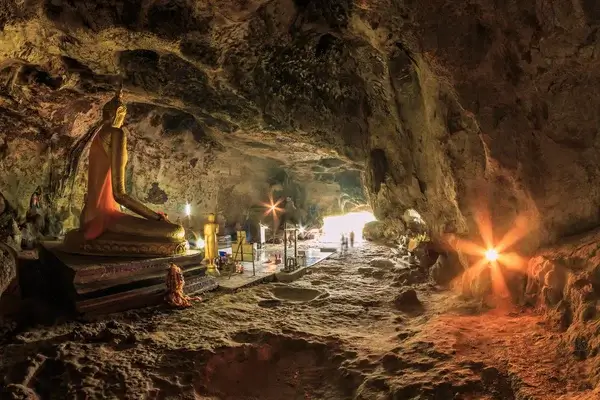
Nestled into a cliff beside the railway tracks, Krasae Cave served as a spiritual retreat and rest area for these workers, providing a rare moment of solace amidst their hardships. The cave’s location along the railway tracks made it a strategic point for both laborers and soldiers during the construction of the railway in World War II.
Inside the cave, you’ll find a Buddha statue, symbolizing peace and reflection amidst a site once associated with immense suffering. Though modest in size, the cave carries a powerful atmosphere, especially when paired with the dramatic scenery around it.
Just outside the cave is the Wang Pho Viaduct, a wooden trestle bridge that hugs the side of a limestone cliff above the River Kwai. It’s one of the most photographed sections of the Death Railway, and the views here are breathtaking.
Travel tip: You can walk a short section of the bridge on foot or time your visit to catch a passing train for a truly scenic and historic experience.
- This highly rated day tour from Bangkok includes a visit to Tham Krasae Cave, along with other must-see Kanchanaburi attractions such as the Bridge over the River Kwai, the Death Railway, and scenic train ride along the Death Railway.
If you want to end your Thailand itinerary by chilling in paradise you can check out our favorite island in Thailand.
8. Best Things to Do in Kanchanaburi: Enjoy Water Activities on the River Kwai
One of the best ways to experience the natural beauty of Kanchanaburi is by getting out on the water. Take a scenic boat trip along the River Kwai, try bamboo rafting through serene jungle landscapes, or enjoy kayaking and SUP at the Bridge on the River Kwai.
Whether you’re looking for a relaxing cruise or a more adventurous outing, water-based activities on the River Kwai provide a refreshing break from Kanchanaburi’s historical sites.
Travel tip: Sunrise and sunset boat rides along the River Kwai offer the most picturesque views and cooler temperatures.
Even with the luck of the Irish, things can still go wrong. World Nomads Travel Insurance is our top choice for travel coverage. With the best transparent fine print in the industry, it’s no wonder they’re ranked number one. Don’t let your Thailand adventures turn to mishaps and get a free quote today!
9. Best Things to Do in Kanchanaburi: Taste Local Cuisine at Kanchanaburi Food Markets
Sampling the local cuisine is one of the most enjoyable things to do in Kanchanaburi – and realistically just in Thailand in general!
JJ Night Market: A Culinary and Cultural Experience
If you’re looking to immerse yourself in the local culture and cuisine of Kanchanaburi, JJ Night Market is a must-visit destination where locals and visitors alike gather to enjoy a variety of experiences. The market is open daily from 5:00 PM to 10:00 PM, with Wednesdays being particularly lively due to the increased number of street food vendors
JJ Night Market’s stunning riverside setting just adds to this Kanchanaburi experience. Here you’ll find a wide range of authentic Thai dishes and regional specialties unique to this part of Thailand – don’t miss the chance to try local favorites like kanom jeen (fermented rice noodles), grilled meats, and sweet Thai desserts.
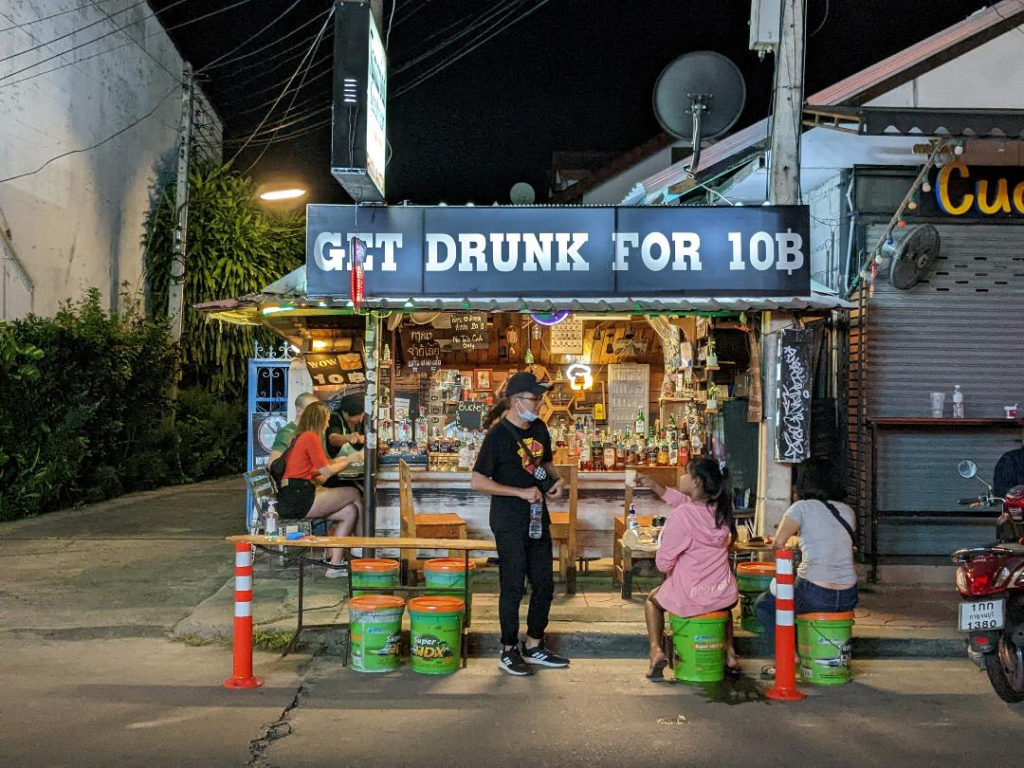
And yes, it’s still possible to grab a local drink for as little as 10 baht (around 25 cents) – if you’re just in the mood to kick back after a full-day Kanchanaburi tour!
Travel tip: For a deeper cultural experience, consider joining a Thai cooking class where you’ll learn to make traditional dishes using fresh market ingredients – perfect for taking the taste of Thailand home with you.
Read more about how we eat cheap around the world!
10. Best Things to Do in Kanchanaburi: Khao Laem Sky Walk
For panoramic views and a unique family-friendly attraction in Kanchanaburi, head to the Khao Laem Sky Walk.
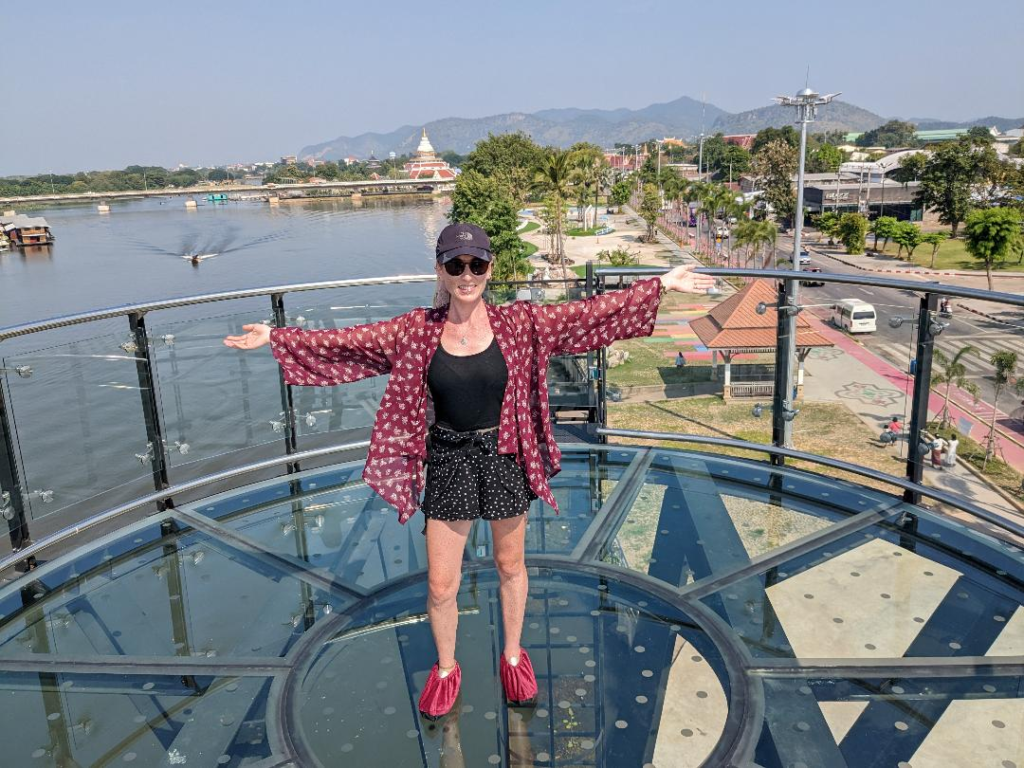
Suspended 34 meters above the ground and stretching 8 meters in length, this glass-bottom skywalk allows you to literally look down at the lush landscape beneath your feet, creating a thrilling yet safe adventure for all ages.
Often referred to as the Kanchanaburi Skywalk, the structure offers stunning views of the Khao Laem Reservoir and surrounding forested hills, making it a great spot for photos, especially on clear days.
Khao Laem Sky Walk Hours & Entrance Info
- Opening hours: Daily from 9:00 AM to 5:00 PM
- Entrance fee: Entry is free, but a 60 THB maintenance fee is charged for shoe covers and upkeep of the glass walkway.
- What to bring: Wear comfortable shoes (you’ll be asked to wear covers over them) and don’t forget your camera!
Travel tip: Mornings or late afternoons are best for avoiding strong sunlight and capturing softer light for pictures.
11. Best Things to Do in Kanchanaburi: Marvel at the Stunning Wat Tham Sua (Tiger Cave Temple)
Welcome to the hidden gem of Kanchanaburi and the highlight of our trip!
Located 15 kilometers from Kanchanaburi town, Wat Tham Sua, also known as the Tiger Cave Temple, is one of the most beautiful temples in Thailand.
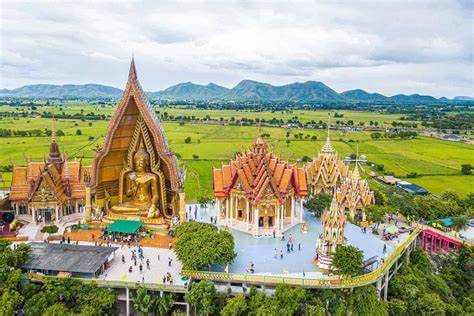
Nestled among limestone hills and overlooking lush rice fields, this temple complex offers some of the most scenic views in western Thailand.
Wat Tham Sua is renowned for its striking multi-level architecture, highlighted by a 157-step staircase lined with intricately carved nagas – mythical serpent-like creatures from Thai folklore. This staircase leads up to the hilltop Buddha statue, an impressive figure measuring 18 meters tall and 10 meters wide. Visitors can also explore a seven-story pagoda and the Tiger Cave, which houses sacred shrines and tiger figurines. It’s truly one of the most impressive temples you’ll find in Thailand!
Wat Tham Sua temple is less crowded than many others in Thailand, making it a peaceful place to visit, reflect, and appreciate both the cultural significance and the natural beauty that surrounds it.
We’ve visited many temples across Thailand, but Wat Tham Sua truly stands out. The sun setting over the most stunning landscape just added to the special beauty of this lesser-known Kanchanaburi attraction.
Top-rated Wat Tham Sua Tours:
- From Bangkok: Death Railway, River Kwai & Wat Tham Suea – experience the best of Kanchanaburi, including Wat Tham Sua, on this day trip from Bangkok.
- From Kanchanaburi: Soak up Thailand’s history with this popular Kanchanaburi Day Tour and visit the Hollywood-famous Bridge Over The River Kwai, as well as, the Tiger Cave Temple.
Along with Wat Tham Sua, find out some more of Thailand’s Hidden Gems here.
Visit Kanchanaburi: Best Riverside Resorts in Kanchanaburi
Kanchanaburi accommodation options range, from riverside resorts with scenic views of the River Kwai to comfortable guesthouses, providing great choices for various preferences and budgets.
Two of the top-rated Kanchanaburi hotels with river views include:
Riverside Kanchanaburi Accommodation: U Inchantree Kanchanaburi Hotel
One of the most popular hotels with stunning river views is the U Inchantree Kanchanaburi Hotel.
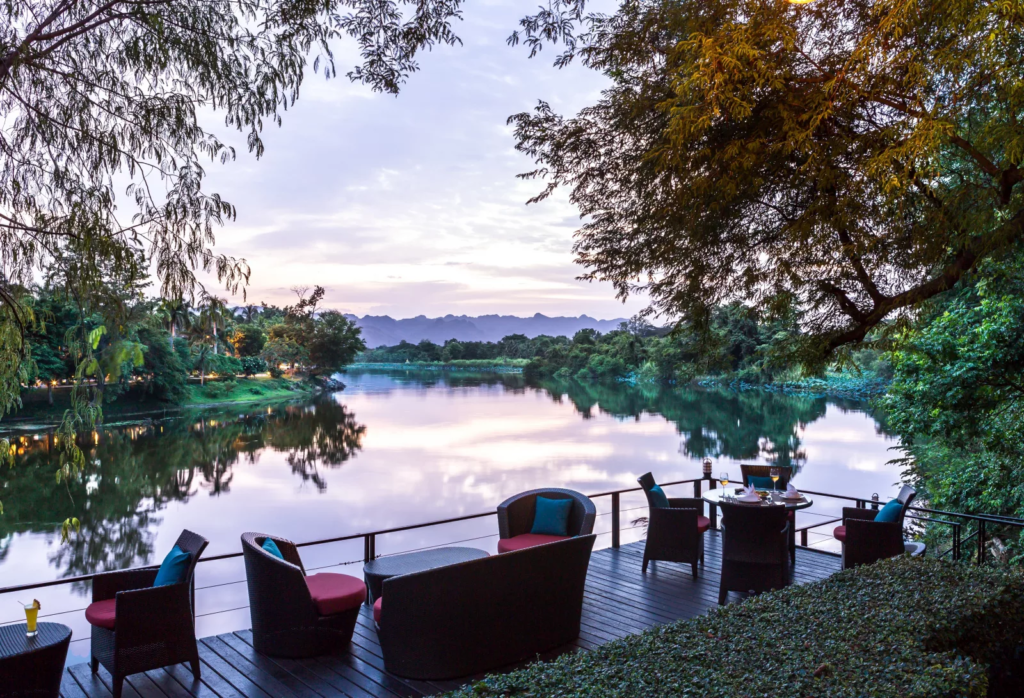
Situated on the north bank of the Kwai Yai River, this modern lodge-style resort boasts an inviting outdoor pool and easy access to nearby Kanchanaburi attractions, making it a favorite choice for visitors looking to relax and explore.
This Kanchanaburi resort is conveniently located only a 5-minute walk from River Kwai Bridge.
Kanchanaburi Accommdation: Mida Resort Kanchanaburi
Mida Resort Kanchanaburi is an ideal choice for travelers seeking both comfort and outdoor adventure. Nestled along the river, this Kanchanaburi resort offers a variety of activities such as campfires and scenic riverside nature walks, perfect for immersing yourself in Kanchanaburi’s natural beauty.

Whether you want to relax by the water or explore the outdoors, Mida Resort provides a memorable stay with plenty to do.
The best part? Both these Kanchanaburi hotels with river views also include free breakfast – we do love a good free breakfast!
Make sure to check out Trip.com for the best accommodation deals in Kanchanaburi:
Visit Kanchanaburi: Are There Guided Kanchanaburi Tours Available?
By now, you’ve probably realized that there are many Kanchanaburi tours available, catering to different interests and budgets.
Some tours focus on the rich history of the area, while others highlight the region’s stunning natural attractions. Many Kanchanaburi tours combine both history and nature for a well-rounded experience.
You’ll find options ranging from full-day or multi-day tours departing from Bangkok to tours starting from Kanchanaburi town. With such a variety of Kanchanaburi guided tours, you’re sure to find the perfect one that matches your interests and schedule.
With so many to choose from, make sure to check out the links below to find a Kanchanaburi Guides Tour that suits you best.
What is the Best Time to Visit Kanchanaburi?
The ideal time to visit Kanchanaburi is during the cool and dry season from November to February. During these months, the weather is pleasant and perfect for outdoor activities like hiking, sightseeing, and exploring magical Kanchanaburi waterfalls. However, this peak season can also bring larger crowds and higher accommodation prices, so booking in advance is recommended.
The hot season from March to May sees temperatures rising above 30°C (86°F), which can make outdoor activities in Kanchanaburi less comfortable due to the heat.
It’s best to avoid the monsoon season between June and October, as heavy rains can cause flooding and muddy conditions, limiting travel options and outdoor adventures – not as magical seeing murky waters replace the paradise turquoise pools of Erawan Falls no doubt!
- Find more detailed information about Thailand’s weather and plan the best time to visit Kanchanaburi.
How Long Should I Spend in Kanchanaburi?
If you’re not taking a full-day guided tour from Bangkok, we recommend spending at least two days in Kanchanaburi.
One day can be dedicated to exploring Erawan National Park, while the other can be spent visiting Kanchanaburi’s historic sites and enjoying the local food markets in the evening.
If you’re looking for a more relaxed pace or want to enjoy water activities like kayaking or swimming, consider adding an extra day to unwind and soak in the scenery.
Visit Kanchanaburi: Is Kanchanaburi Worth Visiting?
We hope this guide has helped you decide to visit Kanchanaburi – a province that truly offers one of the most complete Thailand experiences. From its rich World War II history and vibrant local culture to its world-class natural beauty, Kanchanaburi stands out as a top destination in South-East Asia.
So, is Kanchanaburi worth visiting? Absolutely. In fact, it’s not just worth it – it’s a must-visit destination in Thailand that should be on every traveler’s itinerary.
Start planning your trip to Kanchanaburi today and discover everything this incredible region has to offer!
We would love to hear how you got on. Please feel free to leave us a message below or contact us through our socials.
Slán go fóil


This post contains affiliate links. If you click on the links to make a purchase, we will earn a small commission. This is at NO EXTRA COST to you. This is a free way to support us and allow us to continue to create inspiring adventure travel guides.

